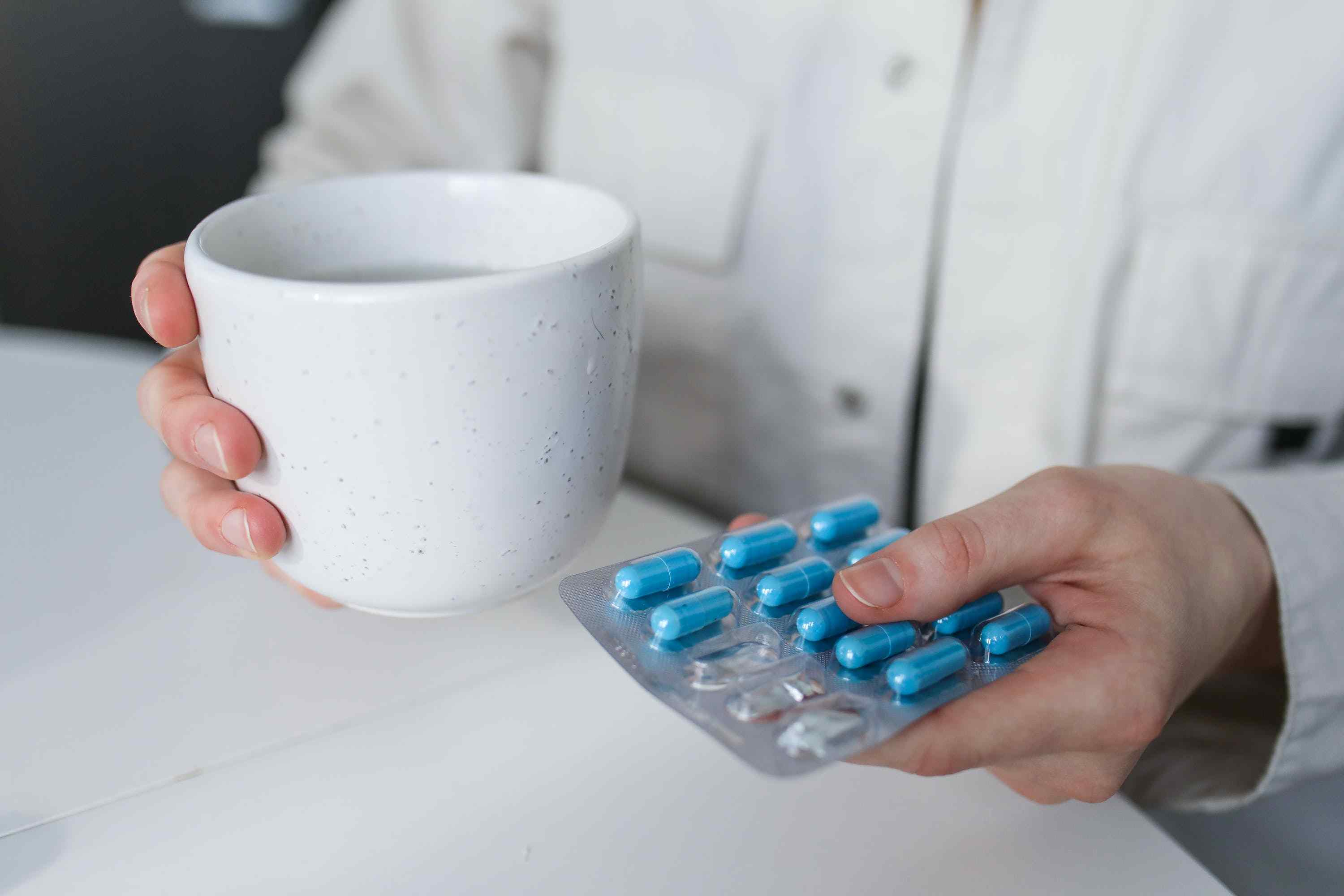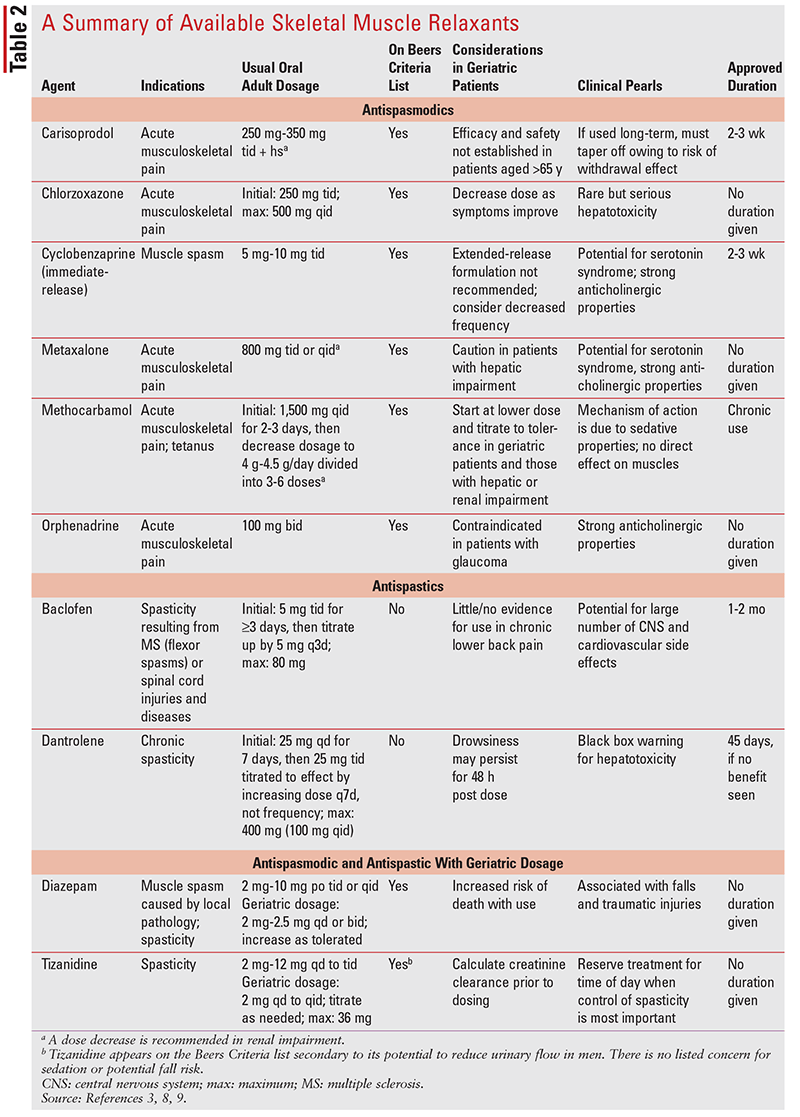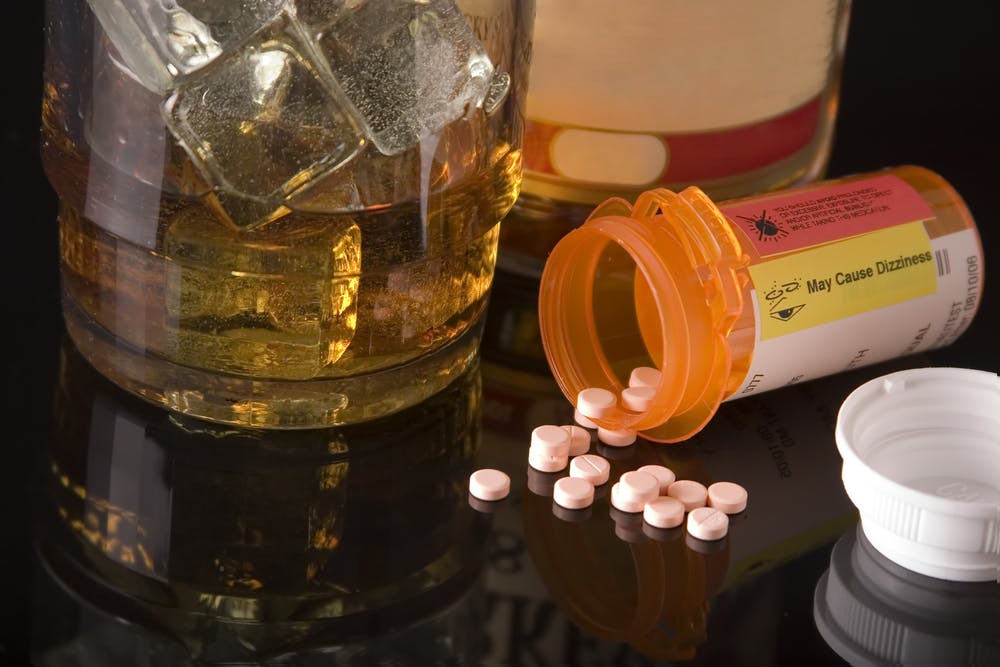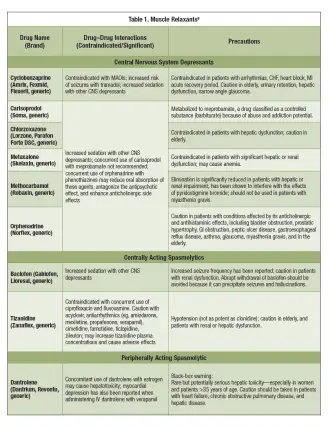Overview Of Alcohol And Muscle Relaxers Interaction

The combination of alcohol and muscle relaxers can have serious consequences on the body. When taken together, both substances act as depressants on the central nervous system, intensifying their sedative effects. This can lead to excessive drowsiness, dizziness, impaired coordination, and difficulty in performing daily tasks. Moreover, the interaction between alcohol and muscle relaxers can result in increased side effects and risks associated with these medications, such as slowed breathing, low blood pressure, and potential overdose. It is crucial to avoid mixing alcohol with muscle relaxers to ensure your safety and well-being.
Overview Of Combining Alcohol And Muscle Relaxers
Combining alcohol and muscle relaxers can have detrimental effects on the body. Since both substances act as depressants on the central nervous system, their combination intensifies their sedative effects. This can result in excessive drowsiness, dizziness, impaired coordination, and difficulty in performing daily tasks. The interaction between alcohol and muscle relaxers can also increase the risks and side effects associated with these medications, such as slowed breathing and low blood pressure. It is crucial to refrain from mixing alcohol with muscle relaxers to ensure personal safety and avoid potential overdose or toxicity.
Impact On The Central Nervous System
Combining alcohol and muscle relaxers has a significant impact on the central nervous system. Both substances are depressants that slow down brain activity. When consumed together, these effects intensify, causing excessive sedation and impairing cognitive functions. The central nervous system becomes further depressed, leading to symptoms such as drowsiness, dizziness, confusion, and weakened judgment. These effects can be dangerous, especially while engaging in activities that require coordination, such as driving. Therefore, it is crucial to avoid mixing alcohol and muscle relaxers to prevent potential harm to the central nervous system.
Common Muscle Relaxers And Their Effects

There are various common muscle relaxers that are often prescribed to treat muscle-related symptoms. Some of the commonly prescribed muscle relaxers include baclofen, cyclobenzaprine, and tizanidine.
Baclofen works by reducing muscle spasms and tightness. It can cause drowsiness, dizziness, and even muscle weakness in some individuals.
Cyclobenzaprine is another muscle relaxer that helps relieve muscle spasms. It can cause dry mouth, dizziness, and blurred vision as side effects.
Tizanidine is also commonly prescribed and helps alleviate muscle spasms. It may cause drowsiness, weakness, and low blood pressure.
It’s important to note that the effects of muscle relaxers can vary from person to person, and it’s crucial to follow the guidance of a medical professional when taking these medications.
Types Of Muscle Relaxers Commonly Prescribed
There are several types of muscle relaxers that are commonly prescribed to alleviate muscle-related symptoms. Some of the commonly prescribed muscle relaxers include baclofen, cyclobenzaprine, and tizanidine. Baclofen works by reducing muscle spasms and tightness, while cyclobenzaprine and tizanidine help relieve muscle spasms. It’s important to note that the effects of these muscle relaxers can vary from person to person. Therefore, it is essential to consult with a healthcare professional who can determine the most suitable muscle relaxer for an individual’s specific needs.
Side Effects And Risks Of Muscle Relaxers
Muscle relaxers can come with potential side effects and risks. Common side effects include drowsiness, dizziness, dry mouth, and blurred vision. These effects can impair coordination and judgment, making activities such as driving dangerous. Muscle relaxers can also interact with other medications, including alcohol, which can increase the risk of side effects. Additionally, prolonged or excessive use of muscle relaxers can lead to dependency and withdrawal symptoms when stopping the medication. It is important to follow the prescribed dosage and consult with a healthcare professional to minimize the risks associated with muscle relaxers.
Effects Of Alcohol And Muscle Relaxers On The Body

Combining alcohol and muscle relaxers can have detrimental effects on the body. Both substances depress the central nervous system, leading to increased drowsiness, dizziness, and impaired coordination and judgment. This combination can also result in extreme sedation and respiratory depression, which can be life-threatening. Moreover, alcohol can enhance the side effects of muscle relaxers, such as drowsiness and blurred vision. It is important to understand the potential risks and consult with a healthcare professional before consuming alcohol while on muscle relaxers to ensure the safety and well-being of the individual.
How Alcohol And Muscle Relaxers Affect The Body
Combining alcohol and muscle relaxers can have detrimental effects on the body. Both substances depress the central nervous system, leading to increased drowsiness, dizziness, and impaired coordination and judgment. This combination can also result in extreme sedation and respiratory depression, which can be life-threatening. Moreover, alcohol can enhance the side effects of muscle relaxers, such as drowsiness and blurred vision. It is important to understand the potential risks and consult with a healthcare professional before consuming alcohol while on muscle relaxers to ensure the safety and well-being of the individual.
Complications And Dangers Of Combining The Two
Combining alcohol and muscle relaxers can lead to serious complications and dangers. The simultaneous use of these substances can significantly enhance the central nervous system depression, resulting in extreme sedation, drowsiness, and impaired coordination. This combination can also lead to respiratory depression, which can be life-threatening. Moreover, the side effects of muscle relaxers, such as dizziness and blurred vision, can be intensified when alcohol is consumed. Additionally, the risks of accidents and injuries, as well as the potential for overdose and toxicity, are increased. It is essential to avoid mixing alcohol and muscle relaxers to ensure personal safety and well-being.
Risks And Dangers Of Mixing Alcohol And Muscle Relaxers

Combining alcohol and muscle relaxers can pose significant risks and dangers to the individual. The interaction between these substances can enhance the sedating effects on the central nervous system, leading to extreme drowsiness, impaired coordination, and even respiratory depression. This can be life-threatening. Moreover, the side effects of muscle relaxers, such as dizziness and blurred vision, can worsen when alcohol is consumed. This combination also increases the risk of accidents and injuries, as well as the potential for overdose and toxicity. Therefore, it is essential to avoid mixing alcohol and muscle relaxers to ensure personal safety and well-being.
Health Risks Associated With The Combination
Combining alcohol and muscle relaxers can lead to numerous health risks. The sedating effects on the central nervous system can cause extreme drowsiness, impaired coordination, and even respiratory depression, which can be life-threatening. Additionally, the side effects of muscle relaxers, such as dizziness and blurred vision, can be further intensified when alcohol is consumed. This combination increases the risk of accidents, injuries, and the potential for overdose and toxicity. It is crucial to avoid mixing alcohol and muscle relaxers to ensure personal safety and well-being .
Potential Overdose And Toxicity
Combining alcohol and muscle relaxers significantly increases the risk of overdose and toxicity. Both substances can depress the central nervous system, leading to respiratory depression and even coma. Consuming excessive amounts of alcohol or taking higher doses of muscle relaxers amplifies these effects and can be life-threatening. Overdose symptoms may include extreme drowsiness, slow breathing, slurred speech, confusion, and loss of consciousness. It is crucial to avoid exceeding the recommended dosage of muscle relaxers and to abstain from alcohol while taking them to prevent the risk of overdose and ensure safety.
Precautions And Guidelines For Safe Use

When it comes to using alcohol and muscle relaxers, there are important precautions and guidelines to follow to ensure safety. First and foremost, always consult with a healthcare professional before combining these substances. They can provide specific advice based on your individual health needs and medications. It’s also crucial to strictly adhere to the recommended dosage of muscle relaxers and avoid excessive alcohol consumption. Additionally, never drive or operate heavy machinery while under the influence of alcohol or muscle relaxers, as they can impair coordination and judgment. Taking these precautions will help minimize the risk of potential complications and ensure your well-being.
Guidelines For Safe Consumption Of Muscle Relaxers
To ensure safe consumption of muscle relaxers, it is important to follow these guidelines. First, always take muscle relaxers as prescribed by your healthcare professional and never exceed the recommended dosage. It is crucial to avoid alcohol while taking muscle relaxers, as it can enhance the sedative effects and increase the risk of adverse reactions. Additionally, inform your healthcare professional about any other medications or supplements you are taking to avoid potential interactions. It’s essential to carefully read the medication label and follow any specific instructions provided. Remember to store muscle relaxers in a safe place, out of reach of children and pets.
Precautions To Take When Using Alcohol With Muscle Relaxers
When using muscle relaxers, it is crucial to take certain precautions to ensure your safety. One of the most important precautions is to avoid consuming alcohol while taking muscle relaxers. Mixing alcohol with muscle relaxers can amplify the sedative effects of both substances, leading to increased drowsiness, impaired coordination, and heightened risk of accidents or injuries. It is recommended to strictly adhere to your healthcare provider’s instructions and avoid any alcohol consumption during your treatment with muscle relaxers. By doing so, you can minimize the potential risks and ensure the safe and effective use of muscle relaxers.
Conclusion And Recommendations

In conclusion, mixing alcohol with muscle relaxers can have serious consequences for your health and safety. The combination can lead to increased sedation, impaired motor function, and heightened central nervous system depression. It is important to prioritize your well-being by following the recommendations provided. Consultation with a healthcare professional is crucial to understand the potential risks and contraindications of combining these substances. It is also advisable to abstain from alcohol while taking muscle relaxers to minimize the potential dangers. Always prioritize your health and safety by seeking guidance from a healthcare professional when it comes to the use of muscle relaxers and alcohol.
Importance Of Consulting Healthcare Professionals
Consulting healthcare professionals is crucial when it comes to the combination of alcohol and muscle relaxers. These professionals have the knowledge and expertise to guide individuals on potential interactions, contraindications, and risks. They can provide personalized advice based on individual health conditions and medications. By consulting with a healthcare professional, individuals can make informed decisions, understand the potential dangers, and minimize the risks associated with mixing alcohol and muscle relaxers. Their guidance ensures the well-being and safety of individuals, emphasizing the importance of seeking professional recommendations before consuming alcohol or starting new medications.
Tips For Managing Pain Without Risking Interactions
When it comes to managing pain without risking interactions between alcohol and muscle relaxers, there are a few key tips to keep in mind. Firstly, it is important to follow the prescribed dosage and timing of your muscle relaxers to avoid any potential complications. Additionally, it is recommended to avoid consuming alcohol while on muscle relaxers, as this combination can amplify the sedative effects and increase the risk of drowsiness or impaired coordination. It’s also important to explore alternative pain management techniques, such as physical therapy, relaxation exercises, or non-medication-based interventions, to minimize the need for muscle relaxers altogether. Consulting with a healthcare professional can provide personalized strategies for pain management that prioritize safety and minimize the risks of drug interactions.
FAQ About Alcohol And Muscle Relaxers: Understanding Drug Interactions
Q: What are muscle relaxers?
A: Muscle relaxers are medications that help reduce muscle spasms and pain by acting on the central nervous system.
Q: How does alcohol interact with muscle relaxers?
A: Alcohol can enhance the sedative effects of muscle relaxers, leading to increased drowsiness, dizziness, and impaired coordination.
Q: Is it safe to consume alcohol while taking muscle relaxers?
A: It is not safe to drink alcohol while taking muscle relaxers as it can potentiate the side effects and increase the risk of harmful drug interactions.
Q: What are the potential risks of combining alcohol and muscle relaxers?
A: Combining alcohol and muscle relaxers can result in severe drowsiness, respiratory depression, impaired judgment, and increased risk of accidents or overdose.
Q: Can alcohol worsen the side effects of muscle relaxers?
A: Yes, alcohol can worsen the side effects of muscle relaxers such as dizziness, drowsiness, and impaired motor skills, posing a danger to the individual’s wellbeing.
Q: Should one consult a healthcare provider before consuming alcohol with muscle relaxers?
A: It is crucial to consult a healthcare provider before consuming alcohol with muscle relaxers to understand the potential risks and receive personalized medical advice.

Let’s be honest—Parma, OH has its fair share of neighborhood joints, as do the surrounding Cleveland suburbs. There are bar food offerings, happy hour, and an enjoyable environment in which to watch the Tribe and Browns.
With Sidekicks Tavern, though, you get all that and then some. You get a bar menu, a warm staff, and a great group of fun customers to hang with.
In the words of one of our favorite regulars, Sidekicks is a hidden gem.